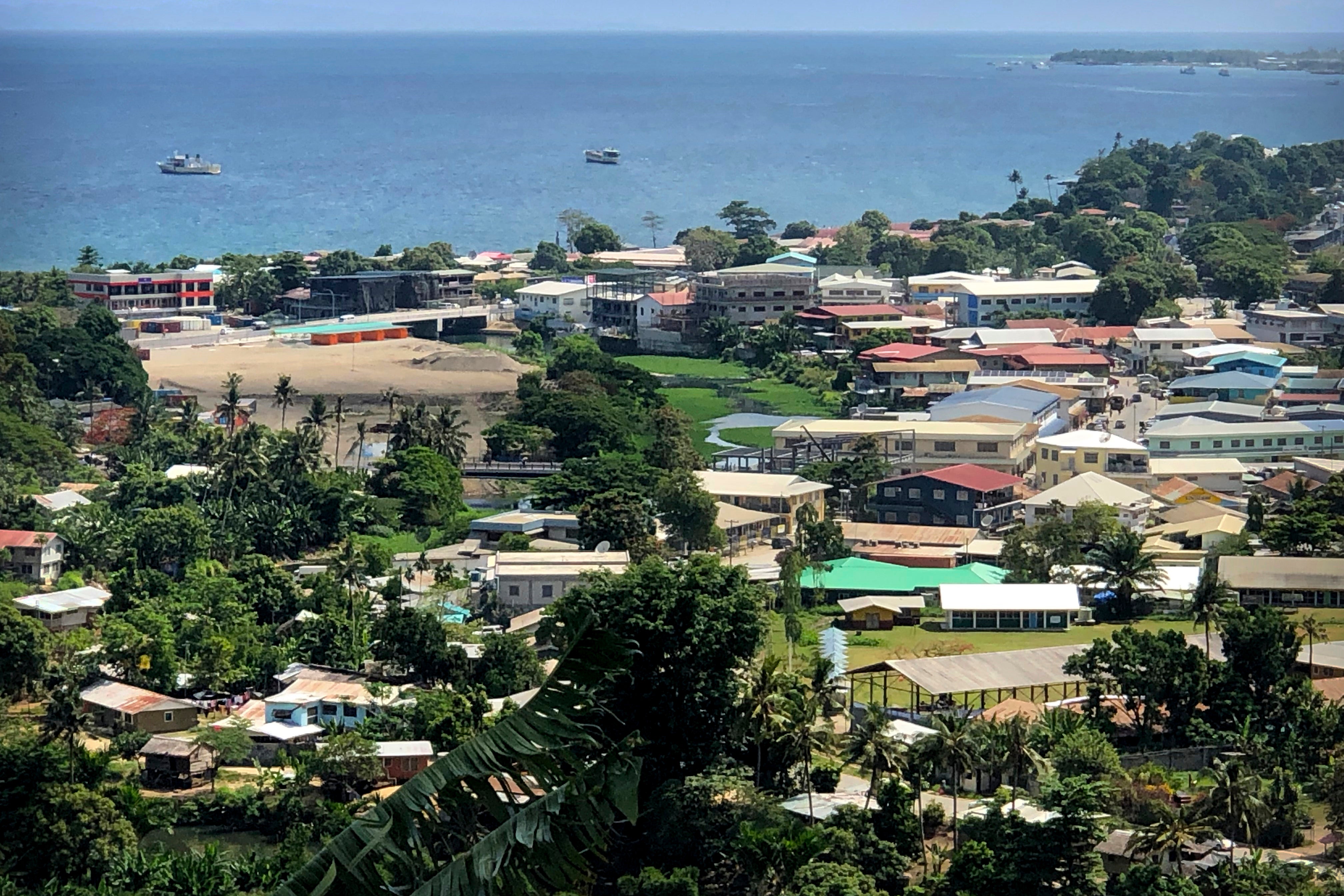Solomon Islands coronavirus outbreak causing growing concern
The first community outbreak of the coronavirus in the Solomon Islands is spreading rapidly through the largely unvaccinated population

With the first community outbreak of the coronavirus in the Solomon Islands spreading rapidly through the largely unvaccinated population, the Red Cross warned Thursday that the Pacific Island nation's fragile health care system is at risk of becoming overwhelmed.
The capital Honiara has only one small hospital and authorities have already turned a sports building into a field hospital and a football stadium into a vaccination center, said Clement Manuri, secretary general of the Solomon Islands Red Cross Society.
“What's currently happening is they are trying to keep only people who are really sick with COVID-19, with difficulty breathing, in those facilities,” Manuri told The Associated Press in an interview from Honiara.
“Otherwise the advice is for people who have tested positive to self-isolate in their homes.”
The nation of some 690,000 is spread across hundreds of islands, and many are served by only small health care clinics or have no nearby facilities at all, Manuri said.
“I think the fear now is if it goes to the villages it will be a very serious problem,” he said.
Solomon Islands authorities said last week that one in every two people in the capital now have COVID-19 symptoms, but with the lack of testing it is hard to say exactly how many are currently ill with the virus, because the regular flu is also going around right now, Manuri said.
Officially, there have been 68 confirmed deaths from COVID-19 and 5,043 cases, according to Our World in Data.
With the appearance of the highly contagious omicron variant of the coronavirus, several other Pacific countries are also experiencing their first community outbreaks now.
Like the Solomon Islands, all have limited health care resources, and there is concern that their remoteness may make helping them difficult.
“We have already seen in Fiji and Papua New Guinea how this ruthless virus overwhelms hospitals and health systems,” said Katie Greenwood, the head of the Red Cross' Pacific delegation, in a statement. "As COVID takes off across the Pacific, it’s more important than ever that vaccines get in the arms of people who are unvaccinated.”
In the Solomon Islands, authorities have been struggling with their vaccine rollout, particularly in hard-to-reach outlying islands. In addition, Manuri said, there is a high level of vaccine hesitancy, largely from false information being spread.
With the current outbreak, however, people are now rushing to be vaccinated, at times overwhelming the vaccination stations.
“People are lining up all day,” he said.
The surge in interest seems partially in response to the outbreak, but also because of new government regulations closing many facilities to non-vaccinated people, Manuri said.
Currently only 11% of the population is fully vaccinated, but another 17% have now had their first shot, according to Our World in Data.
Elsewhere in the region, cases have been reported for the first time in Tonga, Kiribati, Samoa and Palau, and Fiji has been battling an ongoing outbreak for months.
Palau has nearly its entire population fully vaccinated, while Fiji has 68% and Samoa 65%. Kiribati is only at 38% but another 24% have now had their first shot.
Tonga was coated with ash after the Jan. 15 eruption of the massive undersea Hunga Tonga Hunga Ha’apai volcano nearby, then hit with a tsunami that followed.
As international aid came in, so did the coronavirus.
It has now seen more than 200 cases as the virus has spread. Lockdown measures have been imposed to try and contain the pandemic, and so far there have been no deaths.
Tonga has 61% of its total population fully vaccinated. Of the population eligible for vaccination, aged 12 and up, 90% are fully vaccinated and more than 98% have had at least one shot.
Health Minister Saia Piukala said no positive cases have been critically ill so far, and that an Australian navy ship is standing by in case the situation worsens.
“The ship has 40 beds and three operating rooms,” he was quoted as saying by Tonga's online news portal Matangi Tonga. “They can help if any emergencies happen right now.”
Bookmark popover
Removed from bookmarks